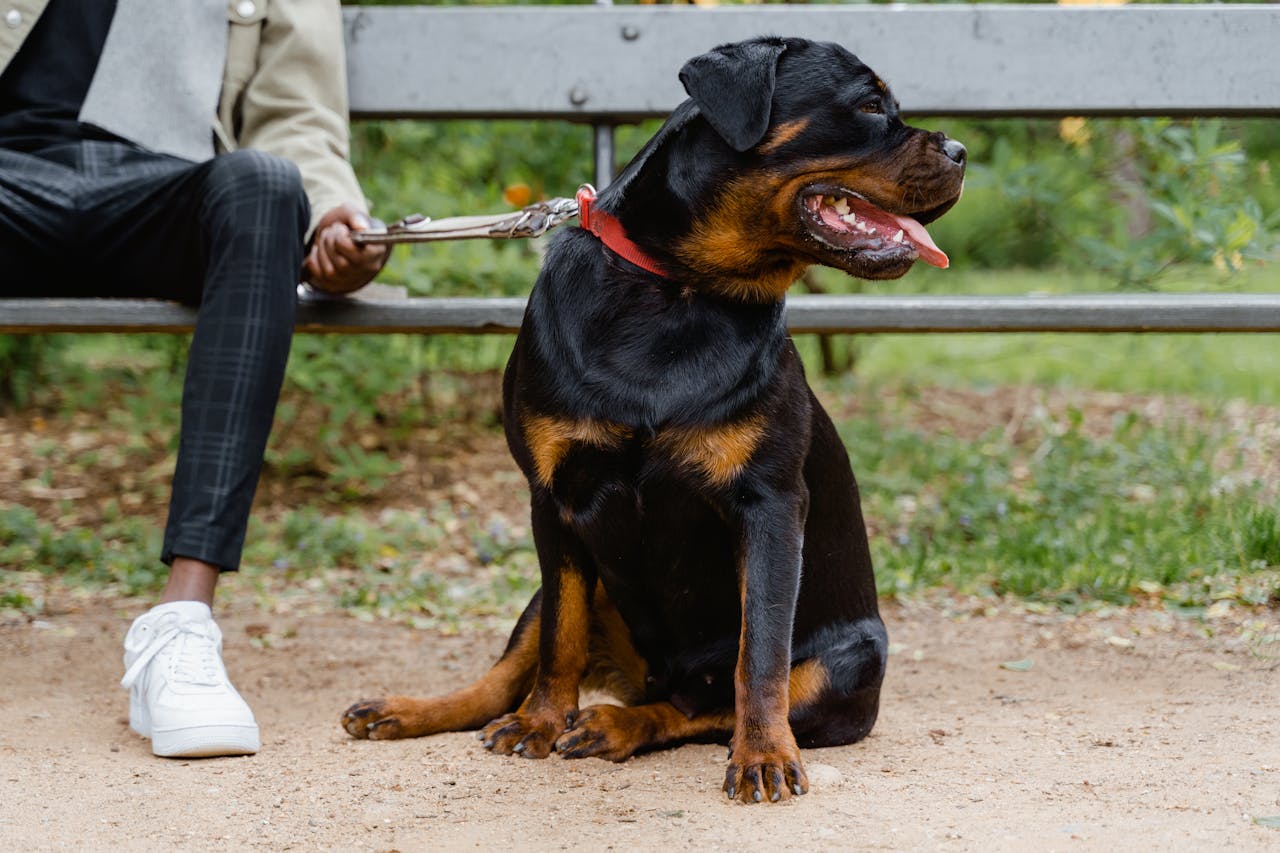
Introduction
So, you’re thinking about bringing home a Rottweiler? Congratulations! This powerful, loyal, and intelligent breed can become an amazing companion. But owning a Rottweiler, especially as a first-time owner, requires preparation, patience, and commitment. This guide will walk you through everything you need to know.
History of the Rottweiler Breed
The Rottweiler traces back to Roman times. Originally, they were used as drover dogs, helping move cattle and protect livestock. Later, they became butcher’s dogs in the German town of Rottweil, pulling carts and guarding money. Today, Rottweilers are known for their versatility, serving as working dogs, protectors, and beloved family pets.
Understanding the Rottweiler Temperament
Are Rottweilers Aggressive?
Rottweilers often get a bad reputation, but aggression isn’t their defining trait. They are protective by nature, which can sometimes be misunderstood. With proper training and socialization, they are calm, confident, and loving.
Family-Friendly Qualities
A well-trained Rottweiler is affectionate and gentle with children. Their protective instincts make them loyal guardians, while their playful side makes them fun companions.
Is a Rottweiler Right for You?
Lifestyle Considerations
Rottweilers thrive in active households. If you love long walks, outdoor activities, or structured routines, this breed will fit right in. However, they don’t do well with owners who lack time or patience for training.
Home Environment Needs
A spacious home with a secure yard is ideal. Rottweilers are large and energetic, so apartment living may be challenging unless you’re committed to daily exercise.
How to Choose a Rottweiler Puppy
Breeder vs. Rescue
Always choose a reputable breeder who screens for health issues. If you prefer adoption, many rescues have Rottweilers waiting for homes.
Signs of a Healthy Puppy
Look for bright eyes, clean ears, a shiny coat, and playful energy. Avoid puppies that seem lethargic or shy to extremes.
Preparing Your Home for a Rottweiler
Safety and Space
Puppy-proof your home by removing harmful items, securing wires, and creating a safe play area.
Essential Supplies
You’ll need a sturdy crate, strong chew toys, food and water bowls, grooming tools, and a comfortable bed.
Feeding Your Rottweiler
Puppy Nutrition
Rottweiler puppies grow quickly and need high-quality puppy food rich in protein and calcium. Feed smaller meals multiple times a day.
Adult Dog Diet
As adults, they need a balanced diet of proteins, healthy fats, and fiber. Avoid overfeeding since Rottweilers are prone to obesity.
Training Basics for First-Time Owners
Obedience Training
Start with simple commands like “sit,” “stay,” and “come.” Consistency is key. Reward positive behavior and avoid harsh corrections.
Socialization Tips
Introduce your Rottweiler to different people, places, and pets early on. This reduces fear and prevents unwanted aggression.
Exercise Requirements
Daily Walks and Playtime
Rottweilers need at least an hour of exercise daily. Long walks, runs, and play sessions help burn energy.
Mental Stimulation
Interactive toys, obedience training, and puzzle feeders keep their intelligent minds engaged.
Grooming and General Care
Coat Maintenance
Rottweilers have short coats that shed moderately. Weekly brushing removes loose fur and keeps their coat healthy.
Nail and Dental Care
Trim nails regularly and brush teeth several times a week to prevent dental problems.
Common Health Issues in Rottweilers
Hip Dysplasia
A common condition in large breeds, hip dysplasia can cause joint pain. Regular vet checkups and weight management help reduce risks.
Heart Conditions
Rottweilers may develop heart issues like aortic stenosis. Early detection through regular vet visits is essential.
The Importance of Vet Visits
Vaccinations and Preventive Care
Keep up with vaccinations, flea and tick prevention, and deworming. Preventive care saves money and stress in the long run.
Annual Checkups
Schedule yearly exams to monitor weight, joint health, and organ function. Senior Rottweilers may need more frequent visits.
How to Socialize Your Rottweiler
With People
Encourage positive interactions with friends and strangers. Reward calm, friendly behavior.
With Other Pets
Introduce your Rottweiler to other dogs slowly. Controlled, supervised meetings help build trust and confidence.
Managing Rottweiler Behavior
Dealing with Stubbornness
Rottweilers can be independent thinkers. Stay consistent, patient, and use firm but gentle training methods.
Correcting Bad Habits
Address unwanted behaviors like chewing, barking, or pulling on the leash early. Redirect their energy into positive outlets.
Conclusion
Owning a Rottweiler for the first time is both rewarding and challenging. With the right preparation, consistent training, and proper care, your Rottweiler will grow into a loyal, protective, and loving companion.
FAQs
1. Are Rottweilers good for first-time dog owners?
Yes, if the owner is committed to training and exercise.
2. How long do Rottweilers live?
On average, they live 8–10 years with proper care.
3. Do Rottweilers get along with kids?
Yes, when socialized early, they are gentle and protective with children.
4. How much exercise does a Rottweiler need daily?
At least 60–90 minutes of physical and mental activity.
5. Can Rottweilers live in apartments?
Yes, but only if owners commit to daily walks, training, and exercise.

